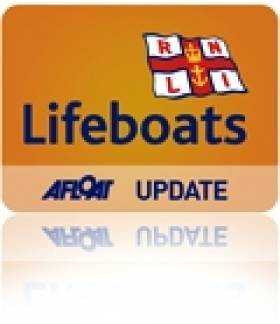Displaying items by tag: East Ferry
Cheese Plant Waste Pipe Has Cork Harbour Community Concerned
A Cork Harbour community is up in arms over the decision to allow the discharge of waste from a cheese factory at their local harbour.
As the Irish Examiner reports, the people of East Ferry say they are opposed to a planned pipeline from the Jarlsberg cheese processing facility in Mogeely via Midleton to the waterway.
The plant has already received a discharge license from the Environmental Protection Agency that critics fear will allow as much as three million litres of treated fats, oils and grease — known as FOG — to be released.
The proposed outflow location is between two protected sites for migrating birds in an area that’s also popular for sailing.
And local campaigners argue that rather than being carried out to sea, as Dairygold suggests, the waste ‘grey water’ will go the other direction towards the harbour.
The Irish Examiner has more on the story HERE.
Five Incidents in Four Days for Cork Harbour Lifeboat
Crosshaven Volunteer RNLI Lifeboat has had a very busy few days as they were tasked to five incidents in four days.
On Thursday evening at 17.59, the Lifeboat was tasked to the upper reaches of Cork Harbour near the city to check out an unidentifiable object in the water. On arrival, the object was found to be a large bag containing foam. Friday evening, saw the Lifeboat heading up the Owenabue River to rescue two punts which had been floated off on the very high Spring tides and were perceived a danger to shipping.
Saturday evening at 20.34, the Lifeboat was again tasked to the North side of Great Island where a 55' Motor Launch with 3 persons on board had mechanical difficulties and drifting in high winds of force 7. On arrival at scene, the crew decided that because of the size and weight of the vessel and the high winds it was safer to anchor the vessel and take off the crew. They were safely landed at East Ferry Pier. As the Lifeboat was returning to Crosshaven, The Coastguard at Valentia again tasked the Lifeboat to search the area between Cobh and Monkstown for an overdue Rigid Inflatable Boat (RIB). After searching for a period, and with nothing found, the Coastguard stood down the volunteer Lifeboat crew to return to station.
Sunday afternoon, and the pagers were again activated at 16.33 to go to the aid of a small boat with engine problems at East Ferry. On arrival in the area, it was noticed that the casualty boat had managed to restart and head into East Ferry Marina.
Related Safety posts
RNLI Lifeboats in Ireland
Safety News
Rescue News from RNLI Lifeboats in Ireland
Coast Guard News from Ireland
Water Safety News from Ireland
Marine Casualty Investigation Board News
Marine Warnings































































